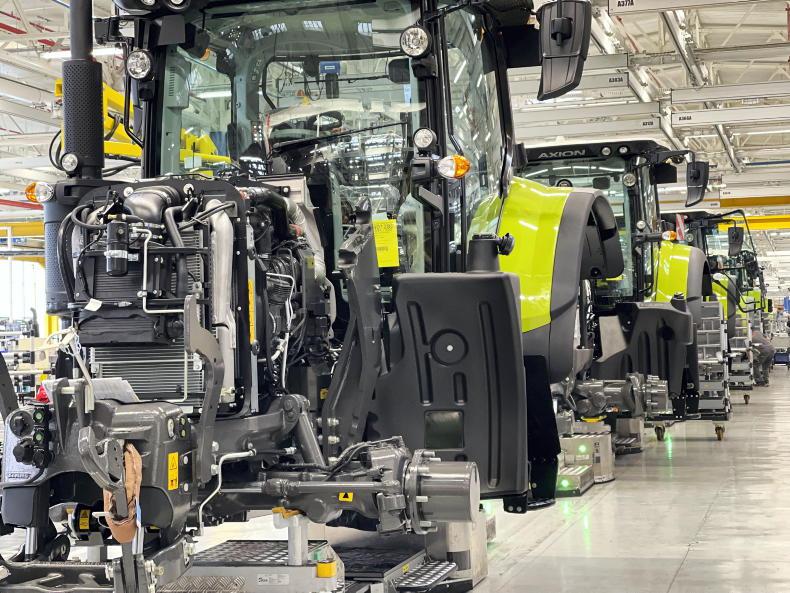The worldwide farm machinery industry is going through a tough period, with demand for equipment having fallen dramatically. High interest rates, challenging weather and relatively low farmgate prices across Europe have put a strain on the sales of new agricultural machinery. We see well-established premium brands such as John Deere, AGCO, CNH, Pöttinger and Krone to name just a few, either letting go of staff, reducing production capacity or reducing weekly working hours.
The worldwide farm machinery industry is going through a tough period, with demand for equipment having fallen dramatically. High interest rates, challenging weather and relatively low farmgate prices across Europe have put a strain on the sales of new agricultural machinery.
We see well-established premium brands such as John Deere, AGCO, CNH, Pöttinger and Krone to name just a few, either letting go of staff, reducing production capacity or reducing weekly working hours.
This problem is also in Ireland, and we have heard of Irish manufacturers tightening hours and also letting go of some staff members.
Each month, CEMA (the association representing the European agricultural machinery industry) carries out a survey within the European agricultural machinery industry with coverage of all major sectors to look at the current and future business situation.
Last year, European manufacturers were quoting an average lead time of 5.5 months for new orders, which was still very high in a historical comparison, but lower than at any time in the past two years.
According to the latest CEMA market trends report, the average production period lead time of European machinery manufacturers has fallen significantly to 2.8 months.
High levels of dealer stocks in most European countries have been another factor in reducing the demand on manufacturers.
Dealer stock recordings in the last six months have been the highest stocks noted to date.
However, CEMA says that this month, the first signals of moderately rising expectations for new orders are based on the assumption that dealer stocks are slowly being sold off.

We see well established premium brands such as John Deere, AGCO, CNH, Pöttinger and Krone to name just a few, either letting go of staff, reducing production capacity or reducing weekly working hours.
The persistence of the economic downturn is nevertheless having a significant impact on production facilities.
The use of temporary workers by European machinery manufacturers is being significantly reduced (61% of the companies surveyed) and 21% are also planning to reduce the number of regular employees. The instrument of short-time working is being used by a third of companies.
August report
Within each month’s report, the association publishes a general business climate index for the agricultural machinery industry in Europe.
According to the body, the April business barometer not only remains deep in recession, but also falls by a further point to -57 (on a scale of -100 to +100).
The current situation and the outlook for the next six months are rated similarly poorly by the respondents.
The tractor market in particular (-88) experienced a further significant downturn compared to the previous month. A similar drop was recorded for harvesting equipment in July and is now stagnating there (-64).
Slump
The body says that the slump affects Europe as a whole, but cautiously more optimistic trends can be seen in Spain and France. A total of 51% of companies surveyed describe current business as unfavourable, but the association feels that the slump may be finally bottoming out.





SHARING OPTIONS: